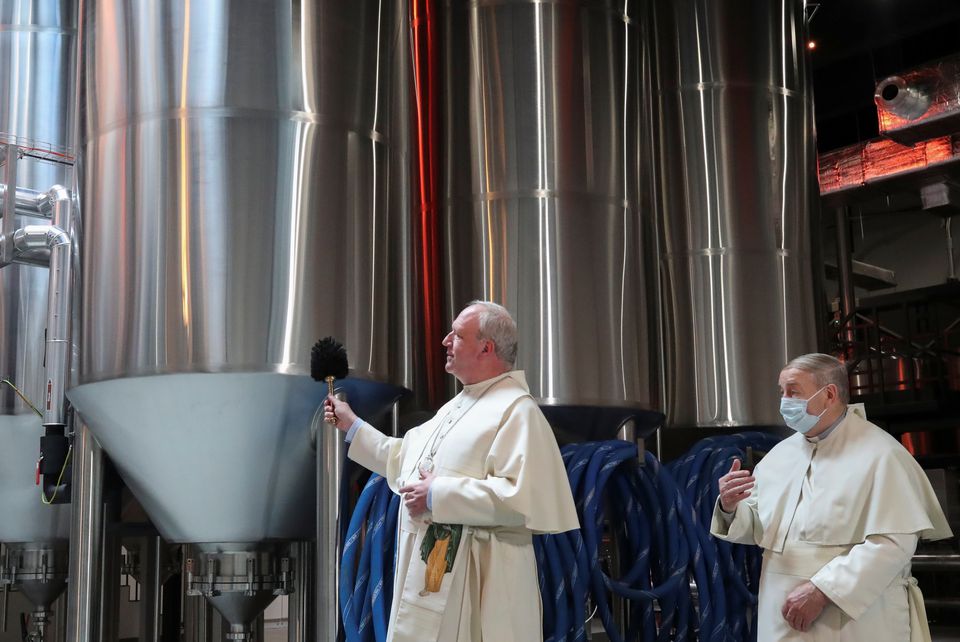Belgian abbey raises brewery from ashes after 200 years


Priests of Belgium’s Grimbergen Abbey have begun brewing for the first time in more than two centuries, with a microbrewery making special editions of the mass-market beer bearing their abbey’s name.
The abbey, whose emblem is a phoenix with the Latin motto “Ardet nec consumitur” (Burned but not destroyed), was twice burned down and ransacked by French troops in 1798, ending a tradition of beer-making dating back to the 12th century.
Karel Stautemas, the white-robed abbey sub-prior who is on the verge of completing brewing studies, said beer-making was a “second life” for Belgian abbeys and the community of 15 Norbertine canons was enthusiastic about its return.
“The core business was religion, but brewing was necessary because water at the moment in the Middle Ages wasn’t drinkable and also it was a kind of payment,” he said.
The abbey, founded in 1128, has been tied to commercial brewers since 1958 when local firm Maes paid the monks to use the Grimbergen name and phoenix emblem on its “abbey beer”. Denmark’s Carlsberg (CARLb.CO) now has the global rights.
The new microbrewery aims to combine the 900-year tradition of beer making, evident in books in the abbey’s library, with new techniques and innovation. To celebrate the opening on Thursday, it is releasing three new Grimbergen beers.
Marc-Antoine Sochon, a brewmaster from Carlsberg overseeing the 10,000 hectolitre-per-year facility, said one of the new beers drew on a tradition from the Middle Ages to use smoky malt.
“That’s the idea I think to make trials, experiments and try new things, in terms of raw materials, small samples,” he said.
The project aims to focus on using local crops and to that end, the abbey has planted hops and herbs in its garden, discovering in the plot an old cow bone used to clarify beer.
Grimbergen’s monks will follow the rules of Belgium’s Trappist beer makers, even if they are not a Trappist order, requiring them to brew within the abbey walls, control the operation and steer profits towards the abbey upkeep and charitable causes.
Source: Reuters




